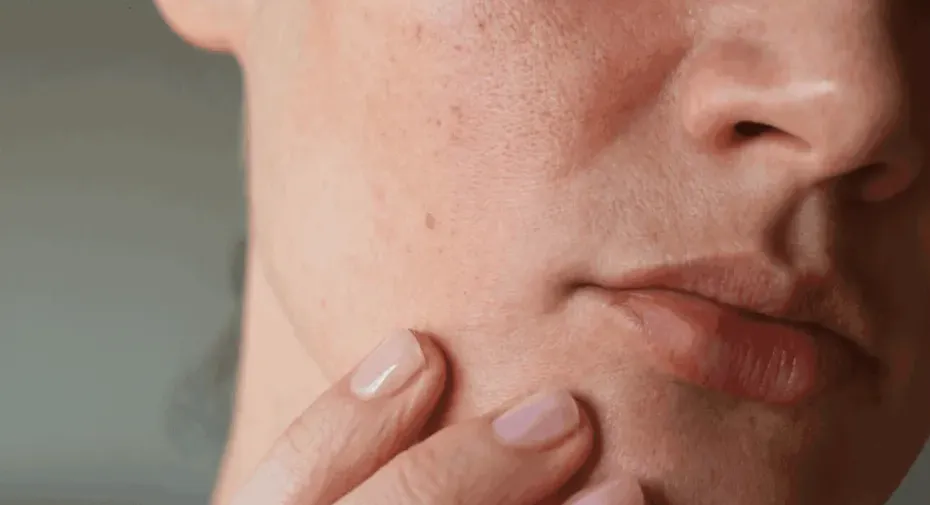Throughout pregnancy, your skin will experience a lot of changes. If you are looking for how to treat dry skin on face during pregnancy, you have come to the right place.
As your hormones fluctuate during pregnancy, this causes your skin to lose moisture and elasticity as it begins to stretch to make room for your little one, which can lead to itchy, tight, flaky and dry skin.
Here are some reasons why you might have dry skin during pregnancy and what you can do to feel a little more like yourself quickly.
The Causes of Dry Skin
The hydrolipidic barrier is susceptible to numerous internal factors. Although it can also be influenced by factors outside of your body, the hydrolipidic barrier is primarily managed by internal processes.
Disproportionate hormone levels are the primary cause of these internal factors. And when was the last time in your life that your hormone levels were constantly fluctuating? Pregnancy.
The hydrolipidic barrier may deteriorate, become porous, or even thin out (become unstable) in some areas as a result of fluctuating hormone levels. These “holes” allow moisture to evaporate quickly off the surface of your skin. As a result, the skin becomes dry, cracked, and itchy.

Consider the hydrolipidic barrier as the top of a water pot. The pot’s lid keeps the steam from escaping into the atmosphere as the water inside is coming to a boil.
What if, however, the lid is punctured? Through those holes, the steam is let out into the atmosphere. That’s what’s happening when you develop dry skin during pregnancy.
Now that you are aware of the causes of dry skin, let’s move on to the more crucial subject of how to treat and prevent it.
Related Reading: Does Hard Water Cause Dry Skin?
How to Treat Dry Skin on Face During Pregnancy?
- Wash up. Dead skin cells that can contribute to a feeling of dryness can be removed from your face by regularly cleaning it. Try a “non-soap” cleanser like These products are less likely to irritate and dry out your skin: Cetaphil or Aquanil. The ingredients in deodorant soaps that absorb moisture should be avoided. When removing makeup at night, use soap just once a day; otherwise, wash your face with water. With a soft towel, gently pat your skin dry.
- Don’t steam. Despite the fact that it might seem logical, avoid steaming your skin because it strips it of its natural oils, making it dry and itchy. That also means you should take ten-minute showers or baths in lukewarm water rather than hot water.
- To your tub, add bath oils. Just watch out for the slick surface you’ve made. (Keep in mind that your stomach may cause you to lose your balance at this moment.)
- Seal it in. To prevent water from evaporating, especially in cold or windy weather, moisturizer should be applied immediately after cleansing your skin (including after washing your hands). Apply once more before going to bed at night and once more throughout the day. Since most dry skin is also sensitive skin, unscented products work best, especially if you’re expecting. To treat extremely dry skin, try applying coconut oil, sweet almond oil, or A+D ointment to problem areas (knees, heels, elbows).
- Mask it. Once a week, give your skin a hydrating facial mask to give it an extra boost of moisture.
- Protect yourself. Wear a wide-brimmed hat to protect your face and an SPF of at least 15 sunscreen every day to protect your extra-sensitive skin.
- Eat well. Include healthy fats (mono and polyunsaturated) in your diet, which can be found in items like nuts, avocados, olive and canola oils, and nuts.
- Stay hydrated. To keep skin moisturized throughout the day, consume plenty of water.
- Use a humidifier. To increase the moisture level in your bedroom, turn it on at night.
Dry Skin During Pregnancy: When to See Your Doctor

Itchy and dry skin can easily accompany your pregnancy, but this doesn’t mean they’re easy to deal with. You can sometimes treat your dry skin at home, but other times you need to see a doctor.
As we previously discussed, dryness and itchy red bumps can appear where your skin stretches around your abdomen. This is normal.
But when your dry skin continues after two weeks even with proper hydration, reach out to your doctor.
Read More:
- How to Treat Dry Skin Around Nose?
- How to Treat Dry Skin Around Eyes?
- Does Drinking Water Help Dry Skin?
Can You Prevent Dryness of Skin During Pregnancy?
You may unknowingly do certain things that cause your skin to become dry, itchy, and flaky. Avoiding them might help prevent dry skin.
- Avoid using soaps with chemicals while you are pregnant as they may cause your skin to become dry and flaky.
- Avoid taking steam because the method may strip your skin of its natural oils, causing it to become dry over time.
- While itchy, avoid scratching your skin because doing so could further harm it.
- A lot of bathing or soap use can dry out your skin, so try to limit it.
- Avoid drinking caffeinated beverages like soda, tea, and coffee because they can dry out your skin.
- Your skin could become dry and damaged by chlorinated water.
- Avoid entering the pool if you are expecting.
Conclusion: How to Treat Dry Skin on Face During Pregnancy
As you now know, dry skin is common in pregnancy.
We recommend using lukewarm water, avoiding rough fabrics, exfoliating your skin, and moisturizing it as just a few of our home remedy tips and tricks.
Treating your stretch marks is another way to keep dry skin at bay. Keep in mind that healthy eating and drinking will keep your skin hydrated from the inside out.
You Might Also Like:
- How to Get Smooth Skin on Face?
- How to Remove Dead Skin on Face?
- How to Tighten Face Skin With Exercise?
FAQs
Why is My Face Dry During Pregnancy?
Your skin loses elasticity and moisture due to hormonal changes as it stretches and tightens to fit a growing belly.
What Skincare to Avoid When Pregnant?
It is best to stay away from ingredients like salicylic acid and benzoyl peroxide while pregnant.
Is Cetaphil Safe for Pregnant?
Dermatologists frequently suggest Cetaphil because it is safe to use while pregnant.




